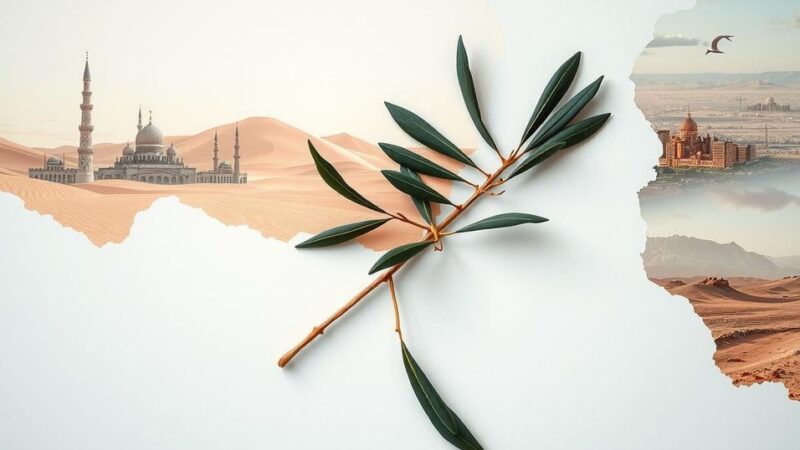Iraqi Prime Minister Mohammed Shia al-Sudani’s meeting with King Charles III in London emphasizes Iraq’s emergence as a sovereign partner in global affairs. The multi-billion-pound deals signify a shift from dependency to collaboration, covering infrastructure and technology. Al-Sudani’s administration is focused on education, political stability, and economic diversification, showcasing Iraq’s evolving role on the world stage.
The recent meeting between Iraqi Prime Minister Mohammed Shia al-Sudani and King Charles III in London signifies a pivotal moment for Iraq as it emerges from its storied past. Two decades after the fall of Saddam Hussein’s regime, Iraq is no longer a nation reliant on aid but a sovereign partner engaging in significant economic agreements with powerful countries. This partnership marks a significant shift from a history of conflict to one of collaboration and mutual opportunity, highlighted by a £12.3 billion agreement with the United Kingdom.
Iraq’s transformation is underscored by the diverse agreements reached during this visit, which encompass essential infrastructure projects and technological advancements. With global leaders from companies such as Shell and BP participating, it is evident that Iraq is now viewed as a viable investment destination rather than a mere geopolitical conundrum. Iraq’s cooperative stance in security matters, such as combating human trafficking in partnership with British authorities, further demonstrates its growing international respect and collaboration.
Education is also a key focus, as showcased by initiatives allowing Iraqi students to study in British universities. This development marks a new era where Iraqis are not only seen as asylum seekers but as scholars and contributors to a global community. The emphasis on human capital development is vital for Iraq’s future and long-term growth.
The improved political landscape in Iraq has enabled a measure of stability, with a coalition government forming smoothly following the 2021 elections. Prime Minister al-Sudani is focused on addressing issues like corruption and infrastructure needs, which resonate with a populace eager for progress. The evolving security environment, bolstered by victories over ISIS, has allowed the government to reclaim much of its territory, though challenges from militia groups remain.
Economically, rising oil revenues afford Iraq the means to invest in crucial sectors, yet dependency on oil poses inherent risks that necessitate diversification initiatives. The activism of Iraqi youth during the Tishreen protests illustrates their growing political engagement and calls for reforms.
Iraq’s diplomatic efforts position the country as a mediator among regional powers while fostering economic ties. Al-Sudani’s op-ed reflects a strategic shift toward addressing global concerns beyond local governance. Although challenges persist, his recent visit to London marks a significant step toward establishing Iraq on the global stage as a collaborative partner.
In the aftermath of Saddam Hussein’s regime, Iraq has historically struggled with instability, violence, and economic dependence. The interaction between al-Sudani and King Charles III highlights a transformative moment for Iraq, showcasing its transition from a pariah state to a respected sovereign nation capable of engaging in significant economic agreements. The history of conflict since the Iran-Iraq war and the subsequent U.S. intervention further complicates the narrative, making this recent diplomatic engagement particularly noteworthy.
The recent visit to London by Prime Minister al-Sudani signals a critical change in Iraq’s international standing. The country, having moved away from years of oppression and instability, is now entering partnerships to enhance its infrastructure and educational systems, reflecting a generational transformation. This dialogue underscores Iraq’s commitment to fostering constructive international relationships and highlights its renewed focus on sustainable development and regional stability.
Original Source: www.intellinews.com







